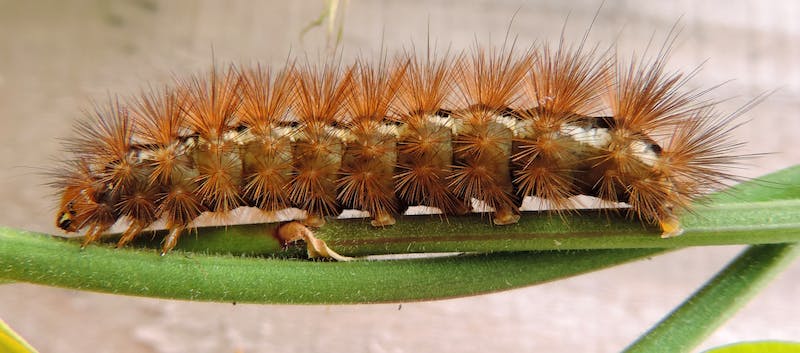Gardening enthusiasts are increasingly turning to organic pest control products as a way to manage pests without harming the environment or non-target organisms. This article explores the effectiveness of organic methods and products, featuring expert insights and real-world experiences to guide gardeners toward informed decisions.
Understanding Organic Pest Control
Organic pest control focuses on using natural substances and methods to manage garden pests, offering a sustainable alternative to synthetic chemicals.
Definition and Importance
Organic pest control involves products and strategies that are derived from natural sources. These methods are important for maintaining ecological balance and reducing chemical exposure in our environments.
How It Differs from Chemical Methods
Unlike chemical pesticides, organic controls often work by supporting natural garden ecosystems, promoting beneficial insects, and focusing on pest prevention.
Types of Organic Pest Control Products
A variety of organic products are available, each with unique properties and target pests.
Plant-Based Insecticides
These products are derived from plants known for their pest-repellent properties, such as neem oil and pyrethrin.
Microbial Insecticides
Microbial controls use organisms like bacteria and fungi to target specific pests while being safe for other wildlife.
Mineral-Based Products
Minerals like diatomaceous earth and sulfur can deter or eliminate pests through physical or chemical means without synthetic chemicals.
Expert Advice on Organic Pest Control
Experts emphasize the importance of selecting the right product and applying it effectively for the best results.
Selecting the Right Product
Choosing an organic pest control solution involves understanding the pest problem, the product’s mode of action, and its environmental impact.
Application Tips for Maximum Effectiveness
Proper application is key to the success of organic pest control. Experts recommend following label directions closely and applying treatments at optimal times.
User Experiences with Organic Pest Control
Gardener testimonials highlight both the successes and challenges of using organic methods.
Success Stories
Many gardeners report effective pest management with organic products, noting improvements in plant health and beneficial insect populations.
Challenges and Solutions
Some users encounter challenges like pest resistance or product efficacy under certain conditions but often find solutions through trial and error or expert advice.
Comparing Efficacy: Organic vs. Chemical Pest Control
Evaluating the effectiveness of organic versus chemical methods involves considering not only immediate results but also long-term environmental and health impacts.
Effectiveness
While organic products may act more slowly than chemical pesticides, they offer longer-term benefits to garden health and biodiversity.
Impact on Environment and Health
Organic pest control minimizes risks to human health, beneficial garden organisms, and the broader environment, reducing the ecological footprint of gardening.
DIY Organic Pest Control Solutions
For those interested in homemade options, there are numerous recipes and preventative strategies.
Homemade Recipes
Common ingredients like garlic, chili pepper, and soap can be used to create effective pest deterrents.
Preventative Measures
Preventative practices, such as crop rotation, companion planting, and maintaining healthy soil, can significantly reduce pest problems.
Integrating Organic Pest Control into Your Garden
Implementing organic pest control requires planning and ongoing maintenance for success.
Planning and Implementation
Incorporating organic methods into garden planning helps prevent pest issues and supports a healthy ecosystem from the start.
Maintenance and Monitoring
Regular monitoring and maintenance of pest control measures ensure ongoing garden health and pest management.
The Future of Organic Pest Control
Advancements in technology and a growing emphasis on sustainability point to an expanding role for organic pest control in gardening.
Trends and Innovations
Emerging trends include the development of more targeted and efficient organic products and strategies, driven by research and technological innovation.
The Role of Technology in Organic Pest Control
Technological advancements, such as drone monitoring and precision application, are beginning to play a role in the efficient and effective use of organic pest control methods.
Organic Pest Control Products
The shift towards organic pest control reflects a broader movement towards sustainability and health in gardening practices. By choosing organic products, gardeners not only protect their plants but also contribute to a healthier environment and a more sustainable future.
FAQs
What are the most effective organic pest control products?
Effective organic pest control products include neem oil, diatomaceous earth, and insecticidal soaps. Neem oil is renowned for its ability to deter a wide range of pests, including aphids, mites, and whiteflies, without harming beneficial insects. Diatomaceous earth, made from fossilized algae, is effective against soft-bodied pests like slugs and snails. Insecticidal soaps can target pests like aphids, spider mites, and thrips on contact while being safe for the environment.
Can organic pest control completely replace chemical pesticides?
Yes, organic pest control can replace chemical pesticides in many gardening contexts, especially for home gardens and organic farming. While organic methods may require more frequent application and a proactive approach to pest management, they offer a sustainable alternative that poses fewer risks to the environment, beneficial insects, and human health. However, the effectiveness of organic versus chemical methods can vary depending on the specific pest and situation.
How can I tell if an organic pest control product is working?
The effectiveness of an organic pest control product can be gauged by monitoring the pest population and plant health over time. After applying the product, observe the treated area for signs of pest activity reduction, such as fewer pests visible on the plants, less damage to the leaves or fruits, and overall improved plant vigor. It’s essential to follow the product’s recommended application frequency and combine methods for the best results.
Are there any risks associated with using organic pest control?
While generally safer than chemical pesticides, organic pest control products can still pose risks if misused. Some organic substances might be harmful to beneficial insects if not applied correctly or at the right time. For example, neem oil can affect bees if used during their active hours. Always follow label instructions regarding application timing and dosages to minimize risks to non-target organisms and ensure the safety of your garden ecosystem.
How often should I apply organic pest control products?
The frequency of application for organic pest control products varies depending on the product and the severity of the pest problem. Some products, like insecticidal soap, might require application every few days until the pest problem is under control, while others, like neem oil, might be applied weekly or bi-weekly as a preventative measure. Always check the product label for specific application instructions and adhere to recommended frequencies to avoid overuse.
Can I use organic pest control in vegetable gardens?
Absolutely! Organic pest control products are particularly well-suited for vegetable gardens because they provide a way to manage pests without introducing harmful chemicals to your food. Many organic products are derived from natural substances that are safe for use around food crops. However, it’s crucial to follow specific label instructions regarding pre-harvest intervals or any restrictions on use to ensure the safety and edibility of your produce.
Conclusion
Organic pest control offers a promising avenue for gardeners seeking safe and effective solutions to pest problems. By understanding the options available, integrating expert advice, and learning from the experiences of others, gardeners can navigate the world of organic pest control with confidence. As the gardening community continues to embrace these methods, the future of gardening looks greener and more sustainable than ever.


Leave a Reply